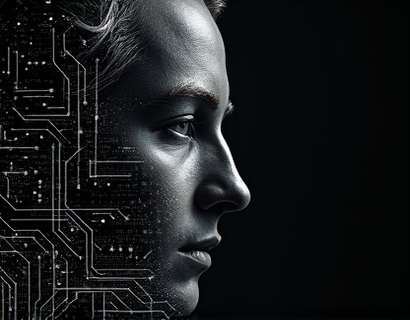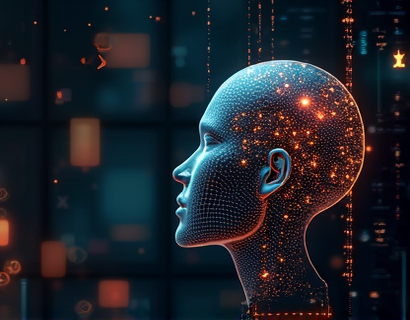Transforming Access to Architecture Knowledge with AI-Powered Chat Interfaces
The integration of AI-powered chat interfaces is revolutionizing the way users access and interact with architectural knowledge. This technological advancement offers a unique blend of expert insights and specialized information, tailored to meet the needs of users of all ages. The focus on safety and education ensures that the content provided is not only accurate and reliable but also suitable for learners and professionals alike. This article delves into how these AI chat interfaces are transforming the architectural landscape, making it more accessible and engaging for everyone.
Enhancing Knowledge Accessibility
The traditional methods of accessing architectural knowledge, such as textbooks, academic journals, and in-person consultations, have been supplemented by innovative digital solutions. AI-powered chat interfaces serve as a bridge between complex architectural concepts and the end-user, breaking down barriers to understanding. These interfaces use natural language processing to interpret user queries and provide relevant, detailed responses. This real-time interaction makes learning more dynamic and interactive, catering to various learning styles and preferences.
Specialized Information for Professionals
For architecture students and professionals, these chat interfaces offer a wealth of specialized information. From design principles and construction techniques to industry trends and regulatory compliance, the content is comprehensive and up-to-date. Users can engage in conversations that mimic human interaction, asking follow-up questions and receiving detailed explanations. This personalized approach ensures that users gain a deeper understanding of the subject matter, enhancing their professional growth and expertise.
Ensuring Safety and Educational Value
One of the key advantages of AI-powered chat interfaces in architecture is their commitment to safety and educational value. Content is rigorously verified to ensure accuracy and reliability. This is particularly important in a field where precision and adherence to standards are paramount. The interfaces are designed to provide information that is not only useful but also safe for all users, including children and students. This focus on educational integrity makes these platforms invaluable resources for learning and exploration.
Child-Friendly and Student-Focused Features
Recognizing the importance of early education in architecture, these chat interfaces incorporate features specifically designed for children and students. The content is tailored to be age-appropriate, using simpler language and engaging visuals to explain complex concepts. Interactive elements such as quizzes and games make learning fun and interactive, encouraging young minds to explore the field of architecture. This approach not only educates but also inspires the next generation of architects and designers.
User-Verified Content
The verification process for content on these AI chat interfaces is a critical component of maintaining high standards. Each piece of information is cross-referenced with credible sources, ensuring that users receive accurate and trustworthy data. This user-verified content builds trust and credibility, making these platforms a go-to resource for both novices and experts in the field. Users can confidently rely on the information provided, knowing it has been thoroughly vetted.
Adaptive Learning for All Ages
Adaptive learning technologies embedded in these chat interfaces allow for a personalized learning experience. The system adjusts the complexity and depth of information based on the user's responses and interactions. This adaptive approach ensures that users of all ages and skill levels can engage with the content effectively. For beginners, the interface provides foundational knowledge and step-by-step explanations, while more advanced users can delve into detailed analyses and specialized topics.
Promoting Continuous Professional Development
For professionals in the architecture field, continuous learning is essential to stay current with industry developments. AI-powered chat interfaces facilitate this by offering regular updates on new techniques, materials, and technologies. Users can ask specific questions about recent projects, emerging trends, or regulatory changes, receiving timely and relevant responses. This continuous flow of information helps professionals enhance their skills and stay competitive in the job market.
Enhancing Collaboration and Communication
These chat interfaces also serve as a tool for enhancing collaboration and communication within the architectural community. Users can engage in discussions, share insights, and seek feedback from peers and experts. The platform fosters a community of learners and practitioners, breaking down silos and promoting a collaborative environment. This interconnectedness accelerates the exchange of ideas and innovation, driving the field forward.
Accessibility and Inclusivity
Accessibility is a core principle in the design of these AI chat interfaces. The platforms are built to be user-friendly, with intuitive interfaces and support for various devices, including smartphones and tablets. This ensures that users can access architectural knowledge from anywhere, at any time. Additionally, features such as text-to-speech and language translation make the content accessible to a broader audience, including non-native speakers and those with disabilities.
Future Prospects and Innovations
The potential for AI-powered chat interfaces in architecture is vast, with ongoing research and development promising even more advanced features. Integration with virtual and augmented reality technologies could create immersive learning experiences, allowing users to visualize and interact with architectural designs in a virtual environment. Artificial intelligence will continue to evolve, providing more sophisticated and context-aware responses, further enhancing the user experience.
Conclusion
The integration of AI-powered chat interfaces in the field of architecture is transforming the way knowledge is accessed and shared. These platforms offer a safe, educational, and interactive environment for users of all ages, ensuring that the information provided is accurate and reliable. By focusing on user verification and adaptive learning, these interfaces are not only enhancing individual knowledge but also contributing to the collective growth of the architectural community. As technology continues to advance, the potential for innovation in this space is limitless, promising a brighter and more informed future for all involved.









































